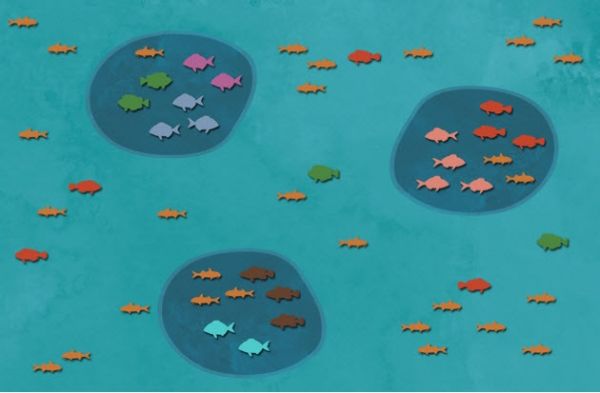Marine protected areas reduce fish mortality by limiting harvesting and reducing habitat destruction. They are often designed and implemented to promote biodiversity conservation and sustainable fisheries. New research shows these conservation efforts lead not only to an increase in the total number of fishes (individuals) in general. Protected areas in the northern Mediterranean Sea also harbour a higher number of common fish species, and significant positive network effects accumulate between individual reserves. This was found by a team of researchers from multiple institutions including the German Centre for Integrative Biodiversity Research (iDiv), Tel Aviv University, Martin Luther University Halle-Wittenberg (MLU) and the Helmholtz Centre for Environmental Research (UFZ). Their results have been published in the Journal of Applied Ecology and shed new light onto how fish communities respond to protection.
Coastal regions of the Mediterranean are home to more than one hundred million of people. For centuries, these regions have been impacted by multiple human stressors – such as nutrient pollution and harvesting of natural resources.
Currently, 6.5% of the Mediterranean Sea is designated with some level of protection, though less than 1% is fully protected from all extractive uses, including fishing. Such protection is known to increase the number of individuals and fish biomass inside protected areas, but the effect on the number of species (species richness) is more variable, and evidence for biodiversity gains through protection is mixed. The international team of researchers examined how fish biodiversity in the Mediterranean responded to protection by comparing the numbers of individuals, the relative abundance of species and how they are distributed in space, for fishes inside and outside of protected areas.
Read more at German Centre for Integrative Biodiversity Research (iDiv)
Image: Local biodiversity conservation initiatives can combine synergistically across a regional system of marine protected areas. CREDIT: Maayan Tzuriel


